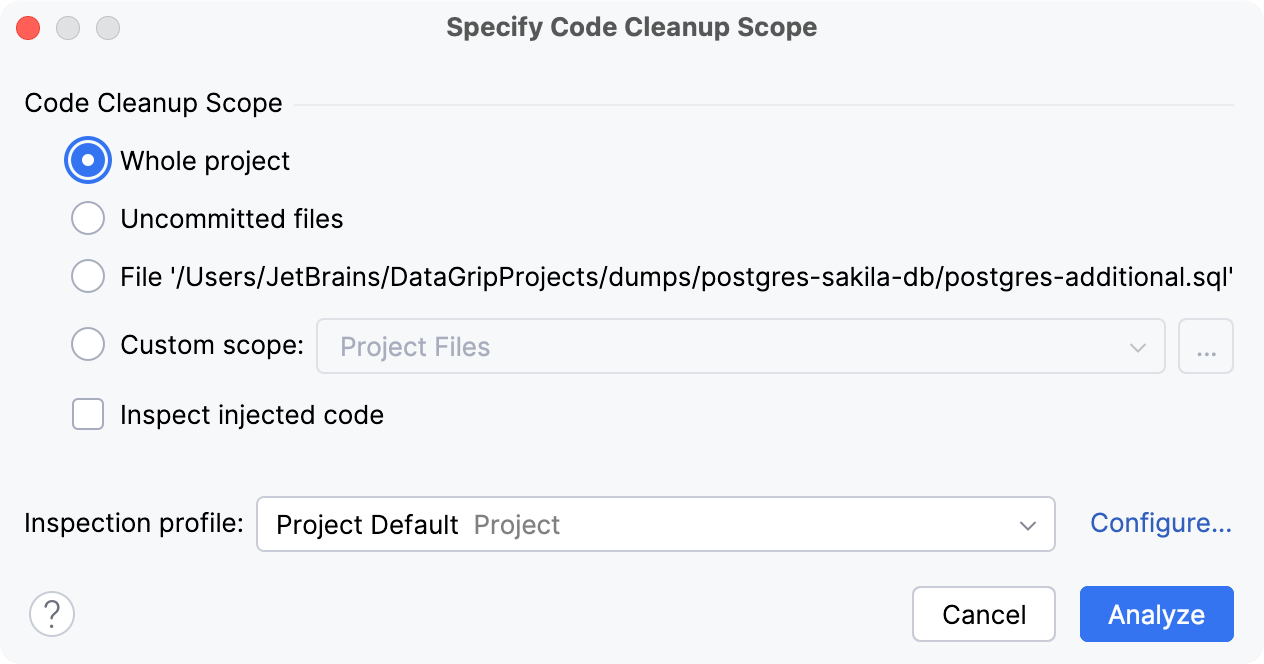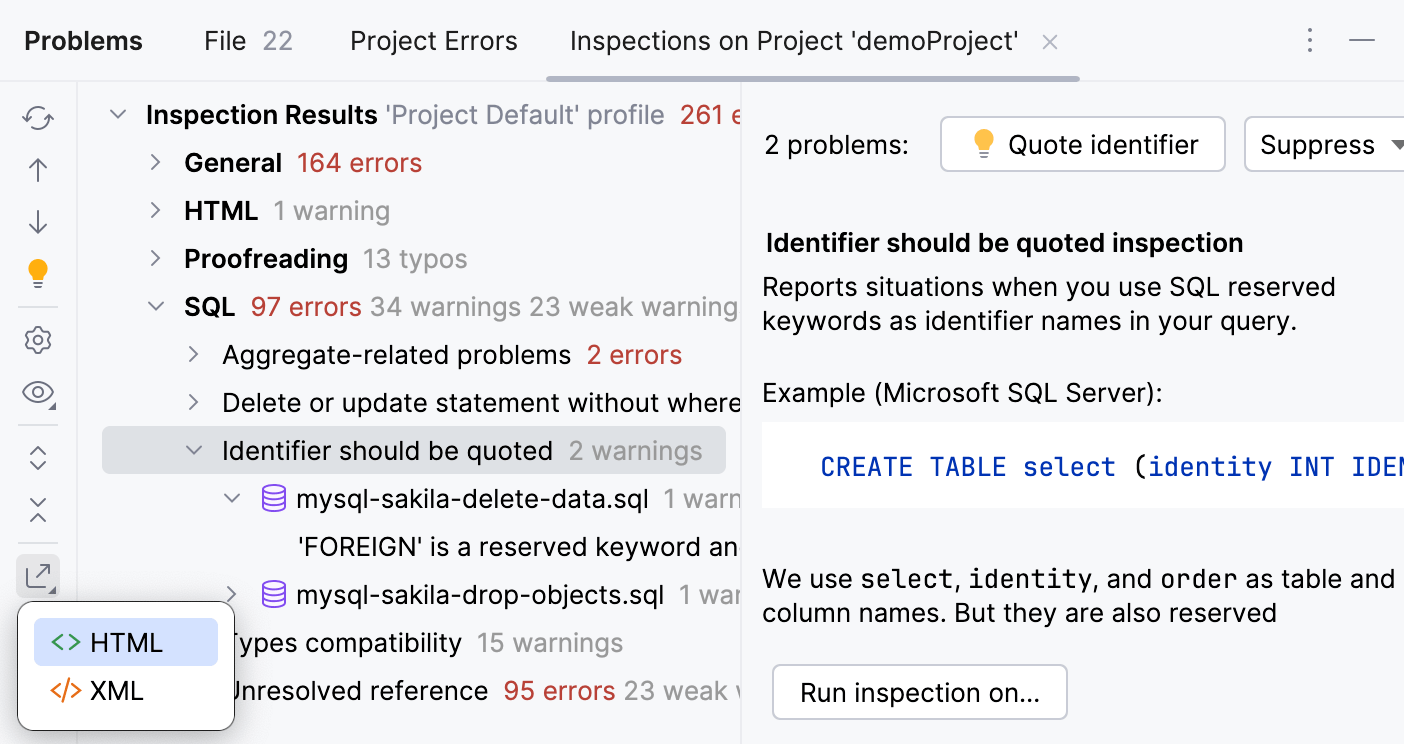Get results and fix problems
If an inspection has detected a problem in your code, you can quickly apply a fix in the editor. Place the caret at the highlighted piece of code and press .
DataGrip shows an interactive preview next to the quick-fix for some inspections. You can hide and show this preview by pressing .
If you have invoked inspections manually, you can examine the results in the Problems tool window that opens automatically after the analysis is finished. All detected problems are listed in the left part of the tool window. Click a problem to display inspection details on the right.
To fix a problem, click the
 icon on the toolbar or in the context menu. You can also press and select a suitable fix from the popup menu.
icon on the toolbar or in the context menu. You can also press and select a suitable fix from the popup menu.If a problem occurs several times in a file, you can fix all the occurrences at once. Select the problem description, click
 icon on the toolbar, select the relevant fix, and then select Fix all "<problem description>" in file from the list.
icon on the toolbar, select the relevant fix, and then select Fix all "<problem description>" in file from the list.
You can streamline the process of fixing problems in your code by running Code Cleanup. This allows you to batch-apply quick-fixes to the selected scope without examining each problem individually.
During the cleanup, the IDE applies fixes from the code cleanup inspections in the selected inspection profile. To view the list of these inspections, open the Settings dialog by pressing and go to Editor | Inspections, click , and enable the Show only cleanup inspections option.
In the main menu, go to Code | Code Cleanup.
In the Specify Code Cleanup Scope dialog, select the scope to which you want to apply a profile.
Select the inspection profile from the Inspection profile list, or click Configure to create a new profile.
You can also click Configure to view all code cleanup inspections and their settings.
Click Analyze to launch the cleanup.

DataGrip performs code analysis and applies quick-fixes from the selected inspection profile to the detected issues.
Alternatively, you can place the caret at an error in the source code that corresponds to a quick-fix, click the red bulb ![]() (suggested quick-fix) that appears on the left, and select Code Cleanup from the menu.
(suggested quick-fix) that appears on the left, and select Code Cleanup from the menu.
You can also run the code cleanup in the silent mode without displaying the Specify Code Cleanup Scope dialog. In this case, the IDE runs the cleanup inspections from the profile that is currently configured in the settings.
Select the node in which you want to clean up your code in the Files tool window .
Otherwise, the cleanup will run in the file that is currently opened in the editor.
In the main menu, go to Code | Analyze Code | Silent Code Cleanup.
You can clean up your code when you commit your changes to the repository if your project is under version control.
note
Press to open the Commit tool window and click Show Commit Options
.
In the Commit Checks area, select the Cleanup checkbox.
Click Configure and select the required inspection profile from which the IDE will run inspections.
Click Commit.
After you run inspections, results are displayed on a dedicated tab of the Problems tool window. You can export them to one of the available formats.
In the Problems tool window (View | Tool Windows | Problems or ), switch to the tab that contains the inspection results that you want to export and click
.

Select the format in which you want to save the report: HTML or XML.
Specify the target directory and click Save.